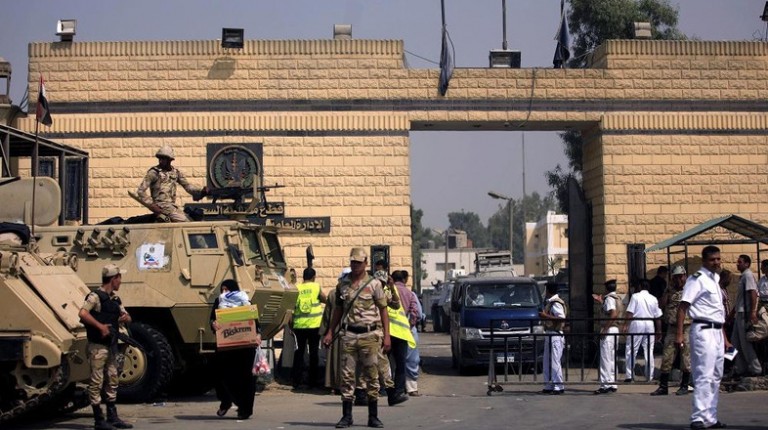The vice president of the Sudanese Sovereign Council, Lieutenant-General Mohamed Hamdan Daglo,
known as “Hamidati,” has accused the former intelligence director Salah Gosh of being behind the
rebellion attempt by Sudanese intelligence agents that caused great terror in the capital, Khartoum, on
Tuesday.
Hamidati added that he does not rule out the existence of external hands behind the scheme. However,
he added that he does not accuse the “state in which Salah Gosh is present.”
Gosh has fled since the overthrow of Omar al-Bashir’s regime to Egypt, where he has been staying for the
past several months.
These allusions raise questions again about the reality of the Egyptian regime’s role in Sudan, and
whether Cairo supported the latest rebellion attempt.
The Sudanese army tried to reduce the size of the rebellion and the head of the Sudanese government,
Abdullah Hamdouk, reassured citizens and said he trusted the capabilities of the Sudanese armed forces
to control security in Khartoum. But hours after the Sudanese army declared control of the rebellion
attempt, violent clashes erupted in three areas of the Sudanese capital.
Military equipment and tanks moved in, and the Sudanese Armed Forces closed several roads leading to
the Sudanese Intelligence headquarters. The shooting continued until late Wednesday night.
While the Sudanese regime maintained that the attempt at revolt was due to protests by these security
forces over reductions in their salaries, Gosh’s accusation means that there are other dimensions at play.
Salah Abdallah Gosh studied engineering and has worked with the intelligence services since the coup in
1989, which brought Bashir to power, according to Sudanese media.
Gosh headed the National Security and Intelligence Service from 2004 to 2009, when he left after being
relieved of his position by Bashir.
In February 2018, Bashir brought him back as the head of the National Security and Intelligence Service
until his resignation last April, two days after Bashir’s military council overthrew him, and he came to
power after months of popular protests that swept the country.
During his first term as head of the intelligence agency, which lasted until 2009, Gosh was credited with
building the agency to become one of the most important security tools in force in the Bashir regime.
Over the years of Bashir’s rule, the agency oversaw prosecutions targeting government and media
opponents.
Gosh was subsequently imprisoned after he was accused of planning a coup against Bashir, but no
evidence was found to condemn him, so Bashir pardoned him and reappointed him again as head of the
intelligence service.
Washington accuses Gosh of practicing torture, and issued a decision to ban his entry into the United
States. The State Department announced that it “has reliable information about Salah Gosh’s
involvement in torture during his tenure as head of the intelligence service.”
Amnesty International earlier urged the Sudanese Military Council to investigate suspected Gosh
violations, including in the bloody raids against demonstrators in the last weeks of Bashir’s rule.
Gosh resigned from his post in the Transitional Military Council on April 13, and the head of the Security
and Intelligence Service came under harsh criticism from protesters.
Although Cairo has repeatedly said that it supports the new regime in Sudan, observers say that the
Egyptian regime is not satisfied with the situation in Sudan.
Egyptian discontent is because the ruling military regime in Egypt would have liked the ruling regime in
Sudan to remain completely military.
This was evident in the Egyptian regime’s attempt to support the prolongation of the transitional period
in Sudan, provided that the Military Council remains fully responsible for the authority, without the
participation of anyone. Sudanese protesters condemned this and attacked General Abdel Fattah al-Sisi.
The Egyptian regime views with concern prospects for the success of the Sudanese revolution, as this
may entice Egyptian opponents to try to repeat the experience in Egypt.
Since 2011, regional allies of the Egyptian regime, Saudi Arabia and the UAE in particular, have worked
to thwart the Arab Spring revolutions, fearing that these successes will spread to their own people.
The Gosh accusation and the hints about the country in which he resides were met with complete silence
from the Egyptian regime.
Observers say it is too early to say whether the Egyptian regime was involved in the latest rebellion
attempt in Sudan, but the next few days may reveal surprises in this regard.





Recent Comments